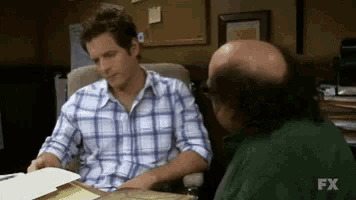An interesting concept arising out of religions, especially Abrahamic ones, is that there is a giant God-shaped hole inside of us that can only be filled with religion and God itself. The infinite abyss can be filled only with an infinite and immutable object, in other words, by God himself. Attempting to fill it with worldly desires and pleasures will lead to a feeling of incompleteness and despair. The God Hole is an imaginary construct, but nonetheless, it tells us something about our deepest desires for longing and our search for meaning in life.
In S7E4 of the evergreen TV series It’s Always Sunny in Philadelphia, Dennis, the charismatic sociopath, in a rare moment of self-introspection, confesses to his equally narcissistic father, Frank, that “I need something. I mean, I got this giant, gaping hole inside me. And I’m always trying to fill it with something. I like to call it my God Hole. And I think a lot of people in this world, they fill it with religion. But I don’t believe in God.”

The entire conversation is meant to be more funny and crude than a philosophical commentary on modern life, but Dennis perfectly describes the dilemma of the modern man, who is lost, estranged, and looking for validation and meaning. Religion, from time immemorial, has served as a social institution. Rituals, beliefs, and symbols help to answer the most fundamental question of life: What is our purpose on Earth? Religion helps alleviate people’s fears and provides them with a meaning for their suffering.
However, for good or bad, the influence of religion has declined over the decades. The wave of secularization swept over the West in the late 20th century and is now increasingly gaining acceptance in Asia. People are more educated, wealthy, and safe and secure than at any point in human history before, and hence the need for religion to provide answers is gone.
The unraveling of religion from human society is an irreversible process, and even if people do not explicitly leave their religion, like atheists, agnostics, or irreligious, religiosity is certainly on the decline. You are less religious than your parents, and your children will be less religious than you. However, who or what will fulfill the function that religion once fulfilled? We try to fill our god hole with social media, Netflix, porn, drugs, and a lot more. Earlier, we found escapism through God; now we find it in Instagram reels. We are still left with the original question, “Is there a God hole inside of us that can only be filled by God and nothing else?”
As religion declines and technology causes us to work even less, we are left with an even bigger abyss inside us that yearns for a purpose and a meaning to this universe. This feeling cannot be done away with it. Under the Dual Process Model, System 1 thinking in our brain is the fast, automatic, unconscious, emotional thinking that explains our belief in religion. We find religious beliefs plausible and attractive because they provide soothing to our existential insecurity. Death, suffering, and randomness are all made tolerable by the fact that there is someone watching over us.
Human beings naturally want to believe that they are a part of something bigger and that life isn’t completely futile. Our minds crave purpose and explanation. Religion is the path of least resistance. Our brains are naturally wired to look towards a greater force that guides this world. No amount of rational thinking or science can fix this innate desire inside of us.
It is clear that there is a God hole inside of us. It cannot be done away with. The question is, do we fill it with answers that religion provides us with, or do we fill it with worldly pleasures like Dennis Reynolds? The answer is neither. Religion is bad, and it’s good that people are finally recognizing that we do not need it. However, moving from one form of illusion to another still leaves us living in fantasies. We ought to engage in rational thinking and recognize that what was told to us in our childhood is deeply problematic.
At the same time, we must learn to adapt to this consumerist and technological world that is obsessed with achieving quick dopamine rushes. The hole inside of you remains a hole because we are trying to escape from something. We do not trust ourselves or our abilities to feel secure on our own. We do not need to rely on external agents to feel good about ourselves. The first step to filling the God hole is to decide how you want to tackle the meaninglessness of life. It would be helpful if you recognized your passions, your values, and your goals and lived life with self-awareness and individuality. Forming meaningful relationships is one way of achieving a sense of stability and security. Religion and Hedonism offer easy answers to filling the God Hole but remember, no one can fill your God Hole, except you. You have to face your insecurities, stare into your hole, and let it stare back at you.
Gunjit Verma is a student pursuing Chemistry Honours from Jamia Millia Islamia.
Edited by: Moneera Aiman



GIPHY App Key not set. Please check settings